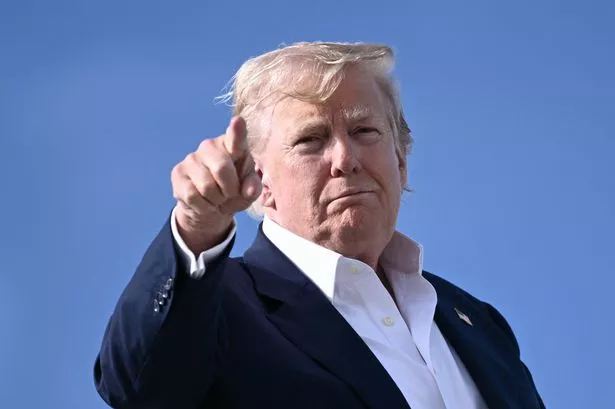In an unexpected political broadside, former President Donald Trump launched a scathing attack on Republican Senator Josh Hawley, expressing furious opposition to Hawley’s support for a proposed bill that aims to prohibit members of Congress from engaging in stock trading. This eruption of anger signaled a significant political conflict, as Trump accused the Missouri senator of attempting to “sabotage” him by aligning with Democrats on this ethics-focused legislation, despite having previously endorsed Hawley’s political career.
Senator Hawley, for his part, has maintained a consistent stance against individual stock ownership by lawmakers, publicly asserting that he personally does not trade stocks and believes such practices represent a conflict of interest. His vote in favor of the stock trading ban during a Senate committee session underscored his commitment to congressional ethics, placing him in direct opposition to the former president’s unstated objections.
Trump’s primary grievance, voiced vehemently on his Truth Social platform, framed the bill as a thinly veiled attack on his person rather than a genuine attempt at legislative reform. He vehemently accused Hawley of acting as a “pawn” for Democrats, suggesting the stock trading ban was merely a pretext to “target” him due to his past “achievements and success,” without offering a clear rationale for his opposition to the bill’s substance.
The former president’s shifting position on the issue added another layer of complexity to the political conflict. Reports indicate that Trump had previously expressed conceptual approval for a congressional stock trading ban, only to later unleash his characteristic ire when Senator Hawley’s visible support for the measure became apparent, highlighting the volatile nature of political allegiances within the Republican party.
The proposed legislation, dubbed “The Honest Act,” represents a significant step towards bolstering congressional ethics. It seeks to impose a comprehensive stock trading ban on all members of Congress, the president, and the vice president, along with their spouses. The bill mandates that existing stock holdings be divested within 180 days and requires annual written certification of compliance, with the Government Accountability Office conducting biennial audits to ensure adherence to the new rules.
This initiative goes beyond the scope of previous attempts to regulate congressional financial activities, such as the STOCK Act, which primarily focused on disclosure and prohibited trading based on insider information. “The Honest Act” aims for a more severe restriction, seeking to eliminate the potential for perceived conflicts of interest by outright banning individual stock ownership, thereby elevating the standards of congressional ethics.
The broader political conflict also brings into focus Donald Trump’s own history regarding the blurring of public office and personal financial gain. His past actions, including hosting foreign dignitaries at his private resorts and promoting various Trump-branded commercial products, have often drawn scrutiny. This context adds another dimension to his vehement opposition to a bill designed to enhance transparency and prevent perceived financial impropriety among public servants.






Leave a Reply